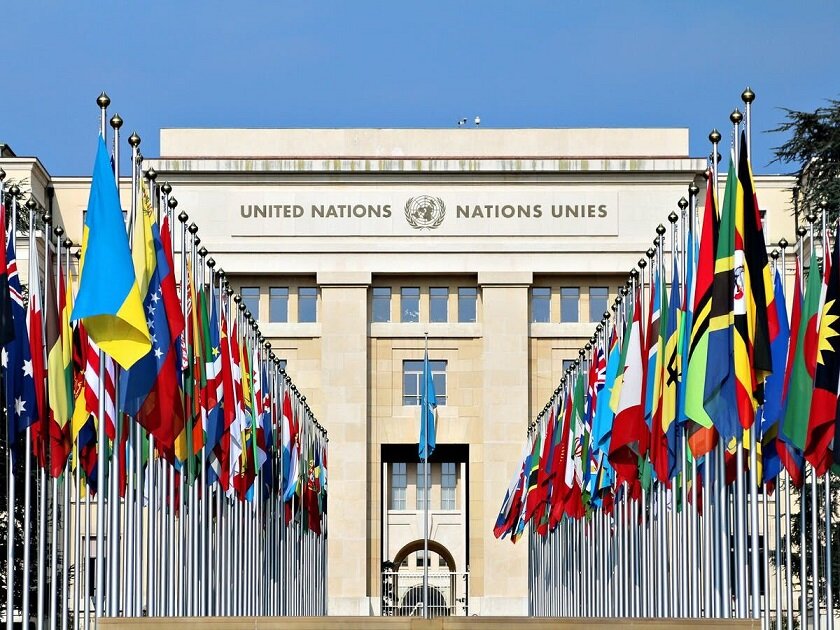TEHRAN – Speaking on behalf 26 countries, Zhang Jun, the Chinese permanent representative to the United Nations, issued a joint statement on Monday at the General Debate of the Third Committee of the UN General Assembly, calling for an immediate lifting of unilateral sanctions, criticizing Western countries for violating human rights, and voicing concern on racial discrimination.
The joint statement said “unilateral coercive measures” violate the UN Charter and international law.
“We continue to witness the application of unilateral coercive measures, which are contrary to the purpose and principles of the UN Charter and international law, multilateralism and the basic norms of international relations,” the Chinese envoy said, noting that these measures violate the human rights by hindering the well-being of the population in the affected countries, in particular women, children, including adolescents, the elderly and persons with disabilities.
The Chinese ambassador to the UN made the statement on behalf of Angola, Antigua and Barbuda, Belarus, Burundi, Cambodia, Cameroon, China, Cuba, the Democratic People's Republic of Korea, Equatorial Guinea, Eritrea, Iran, Laos, Myanmar, Namibia, Nicaragua, Pakistan, Palestine, Russia, Saint Vincent and the Grenadines, South Sudan, Sudan, Suriname, Syria, Venezuela, and Zimbabwe, according to a Xinhua report.
Zhang added that the coercive measures undermine the right to health because they impede access to medicines and medical technologies, equipment, and supplies. “This is particularly relevant in the context of the COVID-19 pandemic. Senior UN officials and the international community have recognized the heavy, negative impact of these measures,” he said.
The U.S. and other Western sanctions have severely affected countries grappling with the coronavirus by impeding the supply of medical goods. Iran is one of these countries that is simultaneously grappling with Covid-19 and sanctions. Iranian officials have said many times that U.S. sanctions on the country have impeded Iran’s ability to fight the coronavirus pandemic.
“Donald Trump is maliciously tightening U.S. illegal sanctions with aim of draining Iran's resources needed in the fight against COVID19—while our citizens are dying from it. The world can no longer be silent as U.S. economic terrorism is supplanted by its medical terrorism,” tweeted Foreign Minister Mohammad Javad Zarif on March 7, 2020.
The foreign minister recently said U.S. officials are lying that their sanctions don’t affect purchase of humanitarian goods by Iran.
“Whatever the Americans are saying about their sanctions not affecting humanitarian items, it’s just a lie... It’s basically medical terrorism,” Zarif said in an interview with Russia Today in September, adding that due to U.S. sanctions, Iran could not use its “own money” to ensure access to coronavirus vaccines under development.
In March, United Nations Secretary-General Antonio Guterres called on the Group of 20 nations to lift sanctions against other countries in the wake of the novel coronavirus pandemic.
"I am encouraging the waiving of sanctions imposed on countries to ensure access to food, essential health supplies, and COVID-19 medical support. This is the time for solidarity, not exclusion," he wrote in a letter to the G20 leaders.
The joint statement has welcomed the UN secretary-general's appeal of March 26, 2020, on the lifting of sanctions. It also highlighted the work of the Special Rapporteur on the Negative Impact of Unilateral Coercive Measures on human rights.
“We take note of the work on this issue of the Special Rapporteur on the Negative Impact of Unilateral Coercive Measures on the Enjoyment of Human Rights, other special procedures of the Human Rights Council and relevant human rights treaty bodies. We look forward to their further elaboration of this subject,” said Zhang. “We seize this opportunity to call for the complete and immediate lifting of unilateral coercive measures, in order to ensure the full, effective and efficient response of all members of the international community to COVID-19.”
TAGS


No comments:
Post a Comment